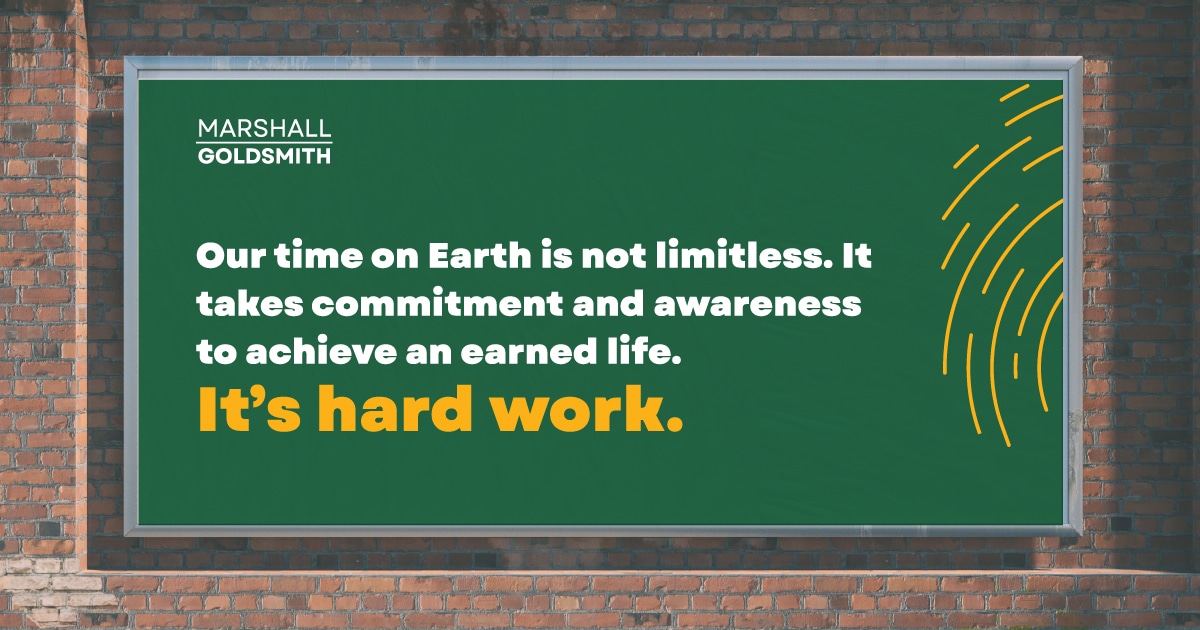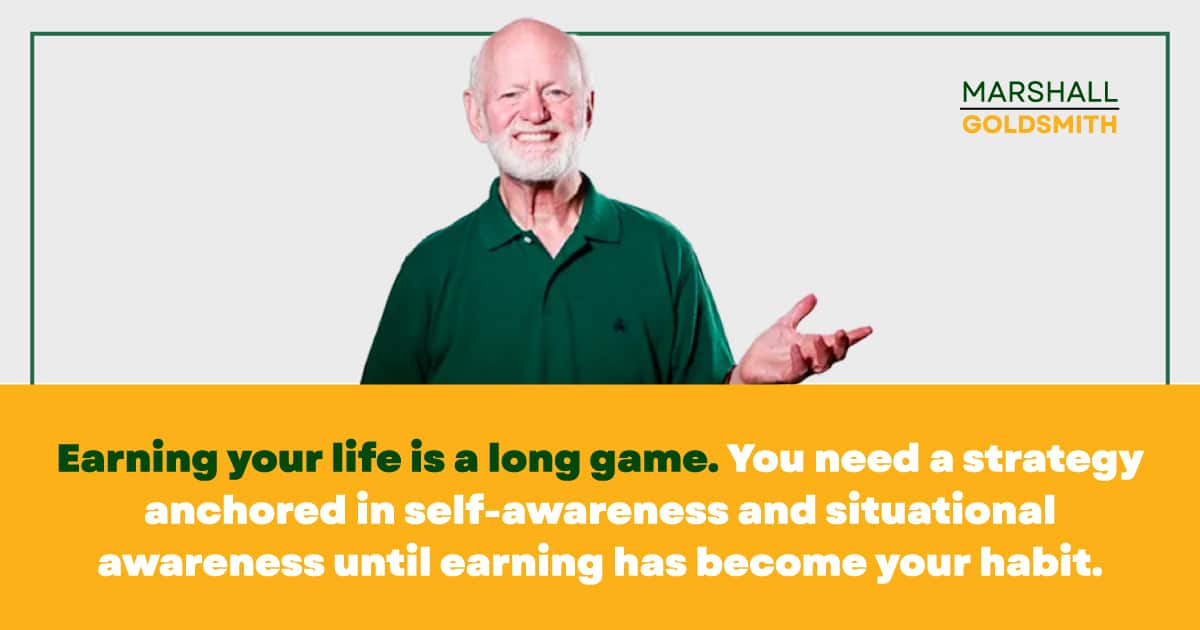Playing Favorites By Marshall Goldsmith There’s a reason I devote...
We earn a living, but what do we do to earn a life, to create an earned life?
When does earning begin? When does it end?
When do we take a time out from all our strivings to savor the process and reevaluate?
When we reevaluate, we may conclude that we need to earn something new.
Some of the ways you can achieve an earned life is by using discipline, which is an acquired skill. You can acquire it through compliance, accountability, follow-up, measurement, and community.
You can apply what I’ve called an LPR, a Life Plan Review, which is a system to help us stay on plan, and which has the added benefit of reminding us to ask for help.
But what about timing?
Our time on Earth is not limitless. And it takes commitment, as well as awareness, to achieve an earned life. It’s hard work.
We’re human, and we deplete our resources — such as energy, motivation, concentration.
When should we step on the accelerator, and when do we step back to recover and reboot, balancing the urgency to “always be earning” with our need to reflect on what we’ve accomplished and what re- mains to be done?
Earning your life is a long game. Actually, it’s the long game. You need a strategy anchored in both self-awareness and situational awareness to sustain the urgency and avoid burnout—until earning has become your habit.

There are several ways to do this:
First, earn your beginnings — that is, recognize where one phase of your life begins and another ends.
You are always in transition — take advantage of that.
Second, disengage from your past.
Before you can effectively earn the next phase of your life, you have to disengage from the old phase you claim to have left behind. Let go of past achievements, relinquish your old identity and way of doing things.
Third, master what I call “the earning response.”
Create a habit to “earn” your life. We can control our behavior, and build a habit of earning your life through the right actions. Change the response, and then change the habit.
Fourth, play the shot in front of you.
In golf, you’re not supposed to move your ball from where it lands to give yourself a better shot.
The best players deal with what they have in front of them. They live in the present.
In other words, every set of facts we see is situational—and there’s something noble in dealing as best we can with what’s in front of us.
We earn each new beginning in life. We close the door on one part of our life and open a new door, with a three-step sequence of Stimulus, Response, and Outcome.
My teachers in graduate school referred to it as the ABC sequence, for Antecedent, Behavior, and Consequence. I’ve heard others describe it as the Cause-Action-Effect sequence.
Whatever the nomenclature, only the middle part of the sequence matters: our response (or behavior or action).
That’s the part we can control and change.

Adding Too Much Value Won’t Get You There By Marshall...
C-Suite Master Class: No, But, However By Marshall Goldsmith Continuing...
The Doerr Institute: Expanding the Market for Coaches By Marshall...
Making Leadership Development Part of the College Degree at Rice...
Sanyin Siang – Winner of the Thinkers50 Marshall Goldsmith Coaching...
Thinkers50 Marshall Goldsmith Distinguished Achievement Award in Coaching – Nominees...
Leading with Influence: What Is Influence360°? By Marshall Goldsmith Founder...
Are You a Dominator, Manipulator, Persuader or Influencer? By Marshall...
Leading with Influence: Redefining Modern Influence Part 2 By Marshall...
My mission is simple. I want to help successful people achieve positive, lasting change and behavior; for themselves, their people, and their teams. I want to help you make your life a little better. With four decades of experience helping top CEOs and executives overcome limiting beliefs and behaviors to achieve greater success, I don’t do this for fame and accolades. I do this because I love helping people!
As an executive educator and coach, I help people understand how our beliefs and the environments we operate in can trigger negative behaviors. Through simple and practical advice, I help people achieve and sustain positive behavioral change.